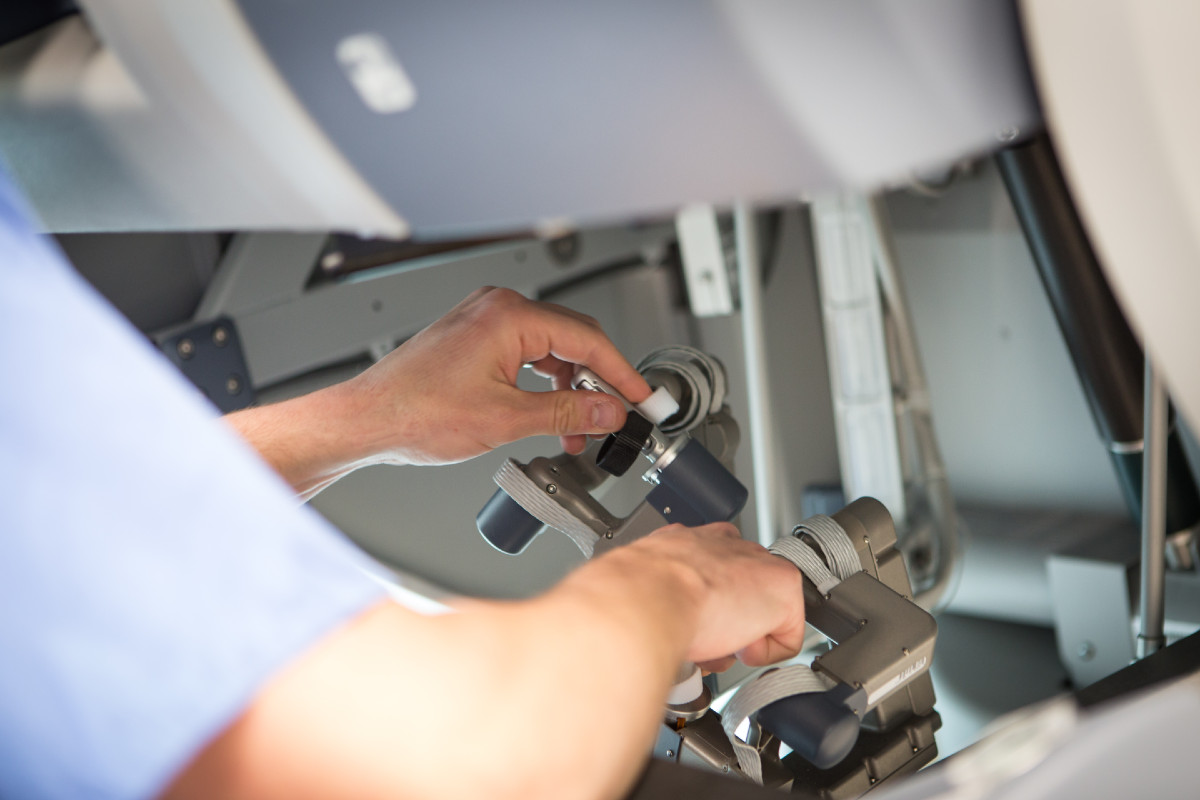West Hertfordshire Teaching Hospitals NHS Trust (WHTH) has become the first NHS trust in the country to deliver a fully technology-enabled pathway for colorectal cancer patients, introducing digital prehabilitation to support patients before and after surgery.
The trust already has a reputation for embracing clinical technology, with more than 97% of elective bowel cancer resections now performed robotically. It has also established a colorectal virtual hospital, enabling patients to return home a day after surgery and be remotely monitored. The new prehab programme completes the loop.
The year-long pilot sees digital health SME QuestPrehab working with 300 patients from diagnosis through to recovery at home.
Vanash Patel, consultant colorectal surgeon and colorectal lead at Watford General Hospital, highlights QuestPrehab's clinical origins, which is led by clinician-founder Tara Rempal. ‘You can tell they genuinely believe in their product. It makes a huge difference working with a team that's clinically driven and really invested,' he says.
‘We've had patients use the digital prehabilitation programme, go on to have their operation, then go home on a virtual hospital. They've gone through an entirely technology-enabled pathway, and it seems to be working.'
Prehab matters
For surgeons, the value of prehabilitation is clear. Patients with bowel cancer present with vastly different levels of fitness. Many are older, living with co-morbidities, or have risk factors such as obesity and smoking that increase the chance of complications.
‘We need to optimise patients before their operation,' Patel explains. ‘But because it's cancer surgery, we only have a few weeks. We can't wait three months for someone to lose weight or improve their fitness. Historically, it was ad hoc, just me in clinic saying "try to stop smoking" or "try to exercise more". Whether patients acted on it was up to them.'
Comprehensive in-person prehab programmes do exist, but they require physiotherapists, dietitians, multiple clinics and staff time—resources that are difficult for most trusts to sustain. Digital prehab, by contrast, offers structured, personalised support at a fraction of the cost.
With QuestPrehab, once a patient is diagnosed and referred, they log into a digital portal that provides tailored programmes for smoking cessation, exercise, nutrition and mental preparation. They are monitored for two to three weeks before surgery, with specialist input delivered remotely.
‘Even if we can optimise someone just a little, their outcomes from surgery are better,' Patel says. ‘And with robotics and virtual care on the other side, the whole pathway is now tech-enabled.'
Securing approval
While the technology itself was straightforward to implement, securing approval for the pilot was far more challenging.
‘In the NHS, when something isn't yet standard care, there's no precedent,' Patel says. ‘I couldn't point to another trust and say "they've done it, so we should too". And because we hadn't run it yet, we didn't have outcomes or data to build a business case.'
The trust was eventually able to secure Cancer Alliance funding - regional funds earmarked for improving cancer services - but long-term adoption remains dependent on demonstrating improved patient outcomes and cost savings over the next year.
Procurement rules pose another hurdle. NHS systems typically require trusts to evaluate multiple competing products before adoption, but with new technologies there often aren't comparable alternatives.
‘The technology is easy. Getting it into the trust is the hard part,' says Patel.
For organisations considering similar digital services, his advice is simple - persevere.
‘As clinicians, we have to be our patients' advocates,' he says. ‘People will always ask how much will it cost? But complications after surgery are far more expensive. If you prevent just one complication, the cost of prehab for 10 patients is already saved.'
Patel believes NHS decision-making can be too short-termist. He says: ‘We look at this year's budget instead of the next five years, but if patients have fewer complications, shorter stays, better outcomes, it will always be cost-effective in the long run.'
Future model
Patel hopes West Herts can become a national model for digital cancer care.
He says: ‘I don't want it just for our patients. If it works here, it will work elsewhere. The NHS needs real-world examples, not just government statements saying we should be more digital, but actual pathways that show how to do it.'
‘This is about getting patients better outcomes, and anything the improves outcomes will make the NHS more sustainable'
To contact Vanash Patel email vanashpatel@nhs.net



